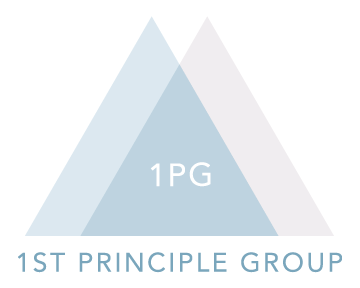Shame and Identity, Part 1: Meet Jack
Jack is the head of a ten-person law firm. He works with more clients than most attorneys do. He’s in a very stable and loving marriage. Jack has four children who respect and value him. He’s an elder at his church.
Jack also struggles with his weight. He has no margin in his life and thus is always tired. Jack’s drivenness has caused him to focus more on his work than on developing deep friendships. Many people know of and like Jack’s public persona, but they don’t know the real Jack: his longings, desires, weaknesses, and failures.
When he gets overwhelmed, instead of turning to God for comfort, he numbs out, binge-watches YouTube clips, and secretly eats more than he needs to. Afterward, he looks at himself in the mirror and sees the shame dripping off his face. Inwardly, he says things to himself like: “I suck,” “I’m hopeless,” or “I’m a failure.”
Notice those three statements. Jack is not saying something about his behaviors. He is speaking of himself as a being. Those are identity statements.
Are those identity statements true of him?
Tim Keller defines identity as “a sense of self and a sense of worth.” He explains that identity is “what makes you feel significant and confident of your value.”
Notice where Jack is getting his identity. It is not from Christ but from his shifting perception of his own performance. When he does well, he views himself as a success. When he does poorly, he’s “a failure.”
Just like Jack, if we try to get our identity from our performance - whether we judge ourselves or let others judge us - our identity will be unstable. We will only be as good as our next performance, and because we sin, we have plenty of opportunities to see our identity as shameful every day.
Building our identity on our performance comes with serious consequences. For example, if we try to build our identity based on our performance, we may become extremely driven to prove our worth, perhaps by having many people want our time and services. Or we may go in the opposite direction and give up, believe we are hopeless, or become despondent. If our identity is rooted in our performance, we will hide and project a false self to others. Like Jack, others won't truly know us, and we won’t be able to develop meaningful connections.
However, what if we get our identity from a source that doesn’t change? What if our identities were always pure, right, and deeply rooted in love? What if our identities led to the destruction of shame, unhealthy drivenness, and despondency?
In this ten-day blog post series, we will look at our true identity, how we can come to believe it to such a degree that it replaces our false identities, and how we can use that identity to eliminate shame, unhealthy drivenness, and despondency.
To read more on what Scripture says about this, see Isaiah 61:7, Psalm 34:4-5, and Romans 8:1.
Prayer: Father, please show me who I really am. Show me on what I am to base my sense of self and worth. Father, please lead me to be transformed so that I become comfortable in my own skin. Help me to be secure that I am loved despite my weaknesses and repetitive sins. Help me to live a life of great meaning and purpose.
Chew On This:
What identity statements do you repeat to yourself?
To continue to part 2 of our Shame and Identity series, click here.

